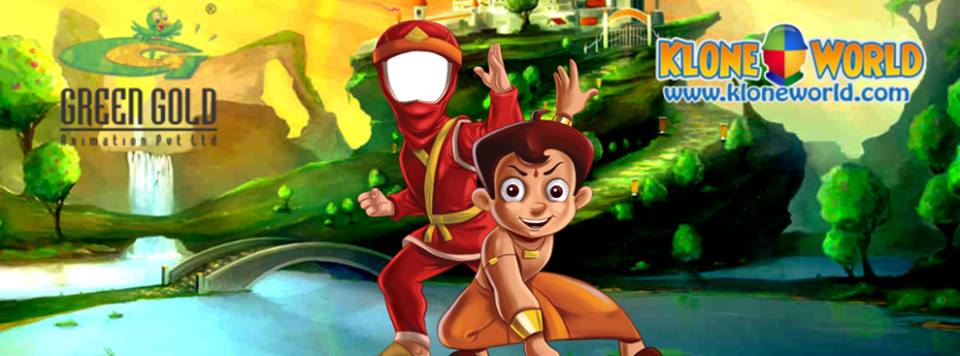A Singapore-based company Kloneworld has developed an application through which one can make a Klone – a personalised digital avatar created by uploading a picture of oneself. The uploaded photo is turned into a 3D image with which one can create animations, comic books, and 3D printed toys. In addition, kids can see themselves as ‘Klinja’, a superhero in the extremely popular Indian series ‘Chhota Bheem’.
Kloneworld, founded in 2012 by Ajay Sharma and Gurjit Sidhu, has previously partnered with Green Gold Animation and the Cartoon Network to create personalised products based on popular programming. For this initiative, an entirely new character, a young warrior named Klinja, has been created specifically to allow children to project themselves into the ‘Chhota Bheem’ program.
In a statement, the creators of Klinja introduced the character and the reasoning behind his development: “Klinja is the first ever superhero that a kid can truly become. Instead of just wearing a costume or a sticker or a mask, kids can actually see themselves become a superhero and perform great feats of heroism…kids can see themselves interact with the world around themselves and watch the other characters respond to them. Klinja is not Bruce Wayne or Clark Kent or Suraj wearing a mask. Klinja is your child.”

The idea behind these objectives began in response to a need for children to have a safe and fun platform for engaging in adventure without the violence and graphic content that is so often present in these types of environments. It’s more than just providing a child’s version of adventure gaming. However, it is a new way of addressing personal identity and control in childhood; something of increasing importance as children grow up immersed in the world of digital interface.
Kloneworld CEO Ajay Sharma, put it this way: “We realise that in today’s ever growing faceless world of emoticons and avatars, people are losing hold of their identities. We at Kloneworld see ourselves as storytellers who aim to bring that back by allowing people to see themselves in animations, short movies, books or 3D printed toys and other memorabilia set in entertaining and educational stories that we tell.”

Klinja is gender agnostic, it allow girls or boys to see themselves in the role of a superhero, whose strength comes, not from some magical source, but from hard work and determination. It’s hard to say if Klinja will have the same appeal abroad as s/he does in India, but the technique of projecting oneself into a beloved animation or 3D printing figurine is certain to mesmerise kids.
